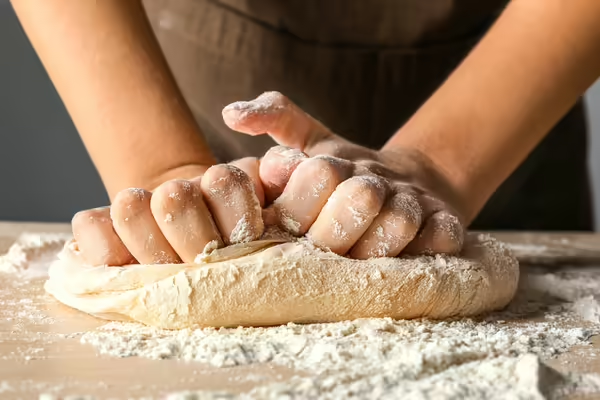
RANTOUL, Ill. — Curious about making bread at home? University of Illinois Extension, in partnership with the Rantoul Public Library, will offer a free breadmaking workshop on Thursday, May 30, at 1 p.m., led by University of Illinois Extension Nutrition and Wellness Educator Rachel Mannen. The library is located at 106 W. Flessner Ave., Rantoul, IL.
This engaging session will introduce participants to the fundamentals of making bread from scratch. From mixing and kneading to shaping and baking, the workshop will cover essential techniques, tools, and tips to help beginners and experienced bakers confidently create delicious, homemade loaves.
“Making your own bread allows you to control the ingredients, reduce preservatives, and enjoy fresh, flavorful results,” said Mannen. “It’s also a great way to build cooking skills and enjoy a rewarding, hands-on experience.”
The class will explore different types of breads, including quick breads, sourdough, and yeast, along with insights into choosing flours. Participants will also learn about the nutritional benefits of homemade bread.
Mannen noted that interest in breadmaking has grown significantly in recent years, especially as more people look to reconnect with traditional cooking skills.
“There’s been a real resurgence in baking from scratch,” she said. “People are drawn to the creativity and satisfaction that come with making something wholesome with their own hands.”
Advance registration is required by May 29. To register or request a reasonable accommodation to participate, contact Rachel Mannen at rmannen@illinois.edu.
University of Illinois Extension develops educational programs, extends knowledge, and builds partnerships to support people, communities, and their environments as part of the state's land-grant institution. Extension serves as the leading public outreach effort for University of Illinois Urbana-Champaign and the College of Agricultural, Consumer and Environmental Sciences in all 102 Illinois counties through a network of 27 multi-county units and over 700 staff statewide. Extension’s mission is responsive to eight strategic priorities — community, economy, environment, food and agriculture, health, partnerships, technology and discovery, and workforce excellence — that are served through six program areas — 4-H youth development, agriculture and agribusiness, community and economic development, family and consumer science, integrated health disparities, and natural resources, environment, and energy.